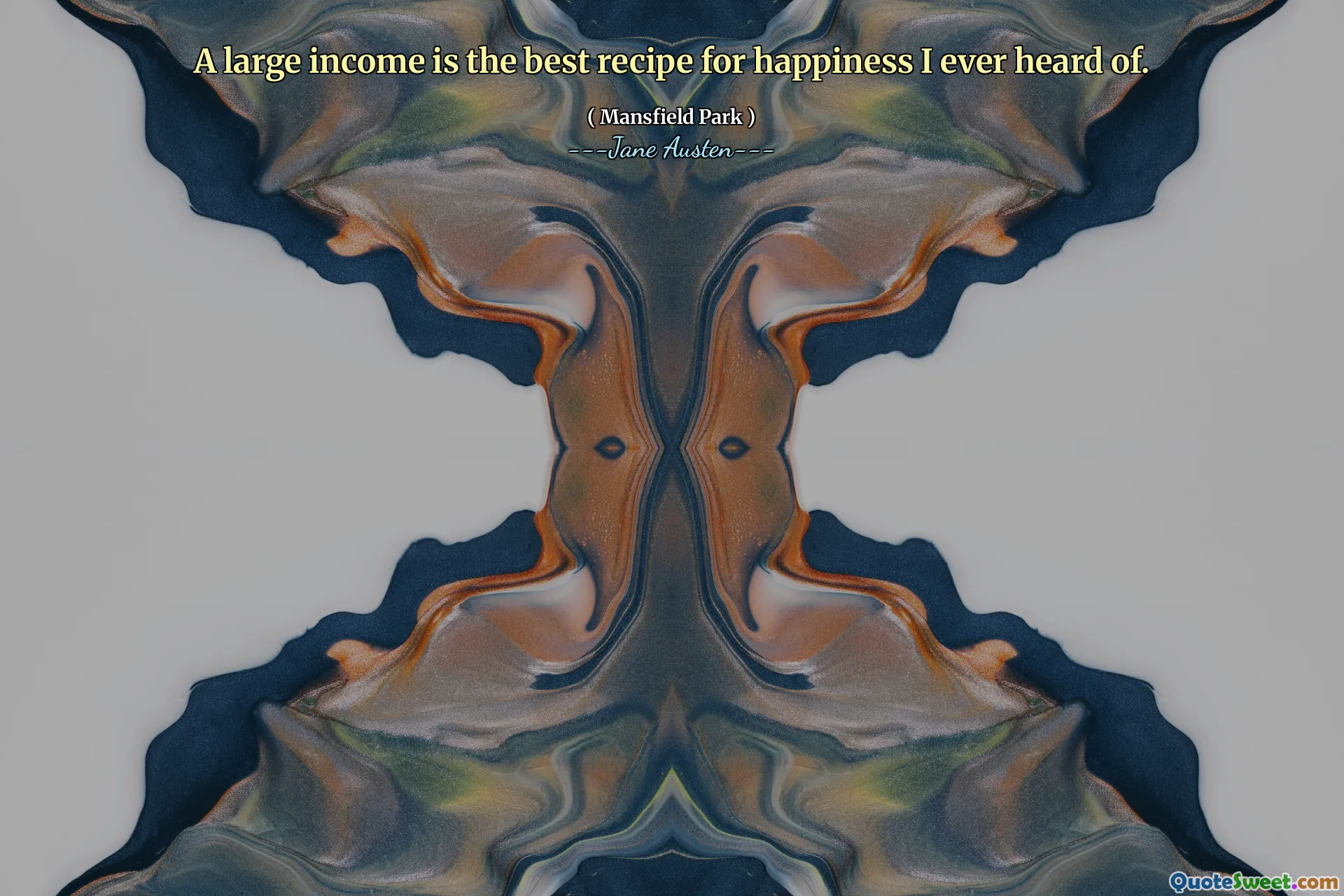
A large income is the best recipe for happiness I ever heard of.
The quote suggests a direct correlation between wealth and happiness, implying that financial abundance significantly contributes to one's overall sense of contentment. While some may dismiss this view as materialism, it underscores the reality that economic stability can alleviate many stresses associated with financial insecurity. When individuals have sufficient resources, they can afford better healthcare, education, and leisure activities, all of which can enhance quality of life.
However, the pursuit of wealth as a sole source of happiness has its pitfalls. True contentment often stems from meaningful relationships, personal growth, and purpose—elements that money alone cannot buy. Relying solely on income may lead to a transient sense of satisfaction, overshadowed by the constant desire for more. Material riches can provide comfort, but overemphasis on wealth might also breed dissatisfaction when expectations are unmet.
Indeed, the quote encapsulates a perspective that values financial prosperity as a key ingredient for happiness, which resonates with many who see economic stability as foundational. Yet, it's important to balance this view with the understanding that happiness is multifaceted. Beyond income, factors like community, health, personal fulfillment, and even simple pleasures play crucial roles.
In reflecting on this idea, one might consider that money can serve as a tool to facilitate happiness rather than being a guarantee. Achieving a healthy relationship with wealth—using it to secure security and opportunities—can foster genuine well-being. Ultimately, this quote stimulates the conversation about what truly enriches life and challenges us to consider the balance between material comfort and other sources of happiness.






